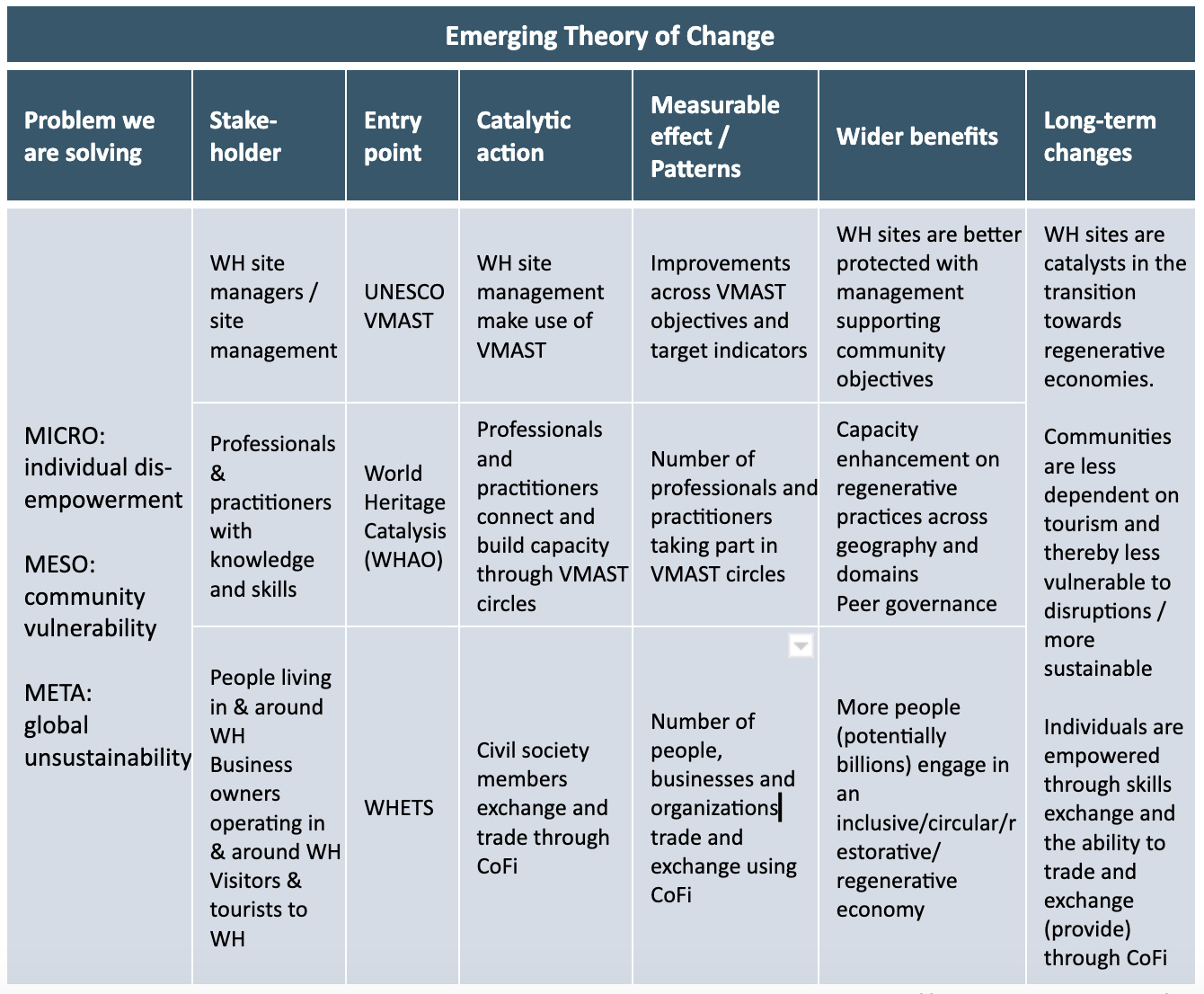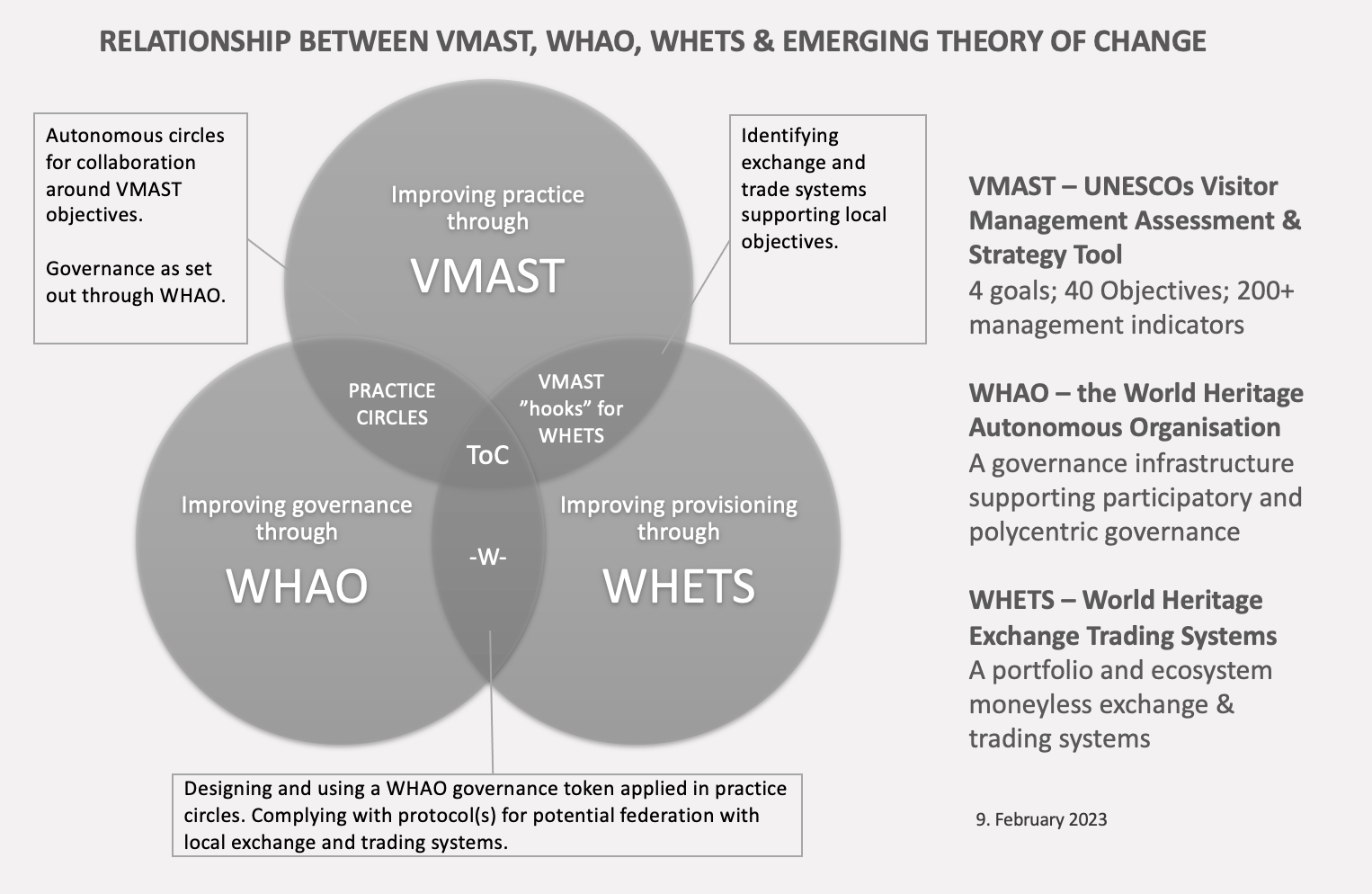Recognising the inherent unsustainability of the economic growth-based development paradigm, pressures on natural and cultural heritage applied as resources in a rent seeking tourism economy, and increasing vulnerability of tourism dependent communities, World Heritage Catalysis’ seeks to contribute a theory of change applicable across World Heritage and associated communities.
The emerging theory of change is based on Elinor Ostroms work on the governance of commons for which she was awarded the Nobel Memorial Prize in Economic Sciences (2009). It specifically looks to the potential of polycentric governance - a distributed form of governance and citizenship that protects the integrity of a system through multiple centers of decision making, and where each center has a certain degree of autonomy (Ostrom Workshop, Indiana University Bloomingdale).
In simpler words it suggests an expanded relevance for World Heritage beyond tourism. By considering World Heritage 'commons' - heritage belonging to all - supporting a model where appropriate rules aned infrastructure supporting connectivity, stewardship and resilience.
World Heritage Catalysis’ Theory of Change seeks to explain how World Heritage sites, through a technology supported process aspiring to improve visitor management, could develop a more polycentric (inclusive and distributed) form of governance model.




